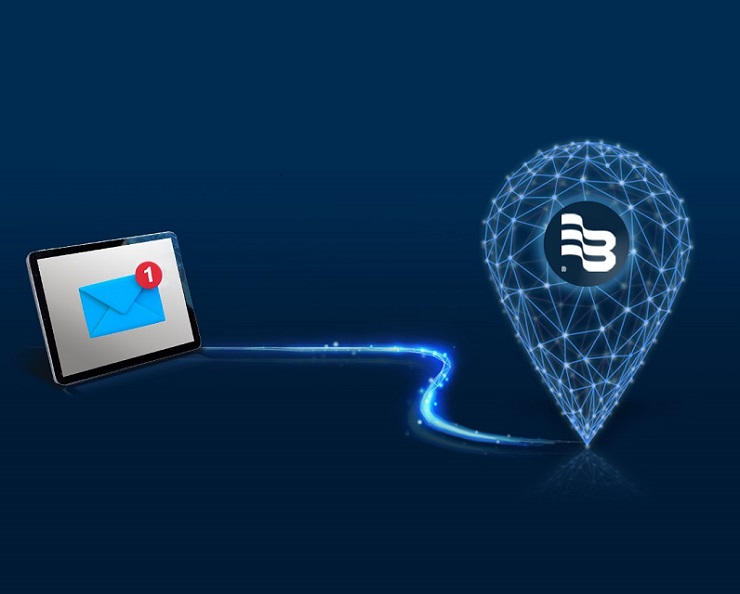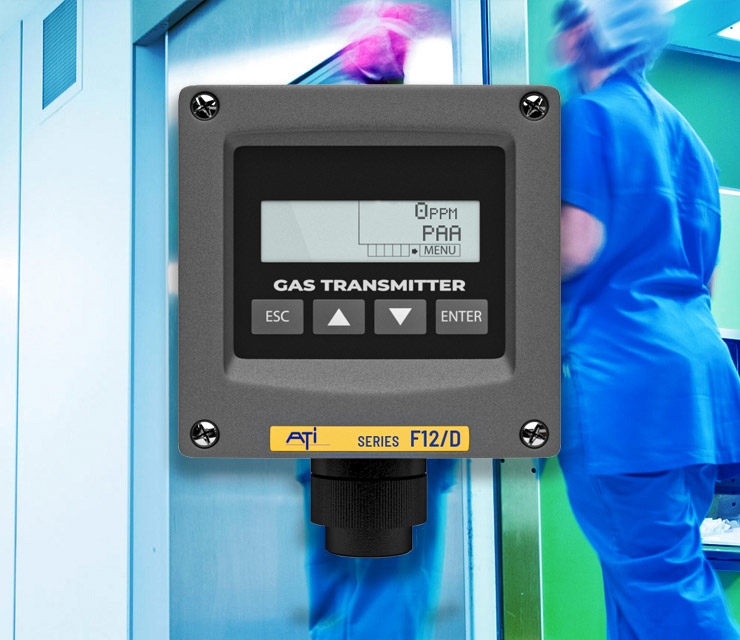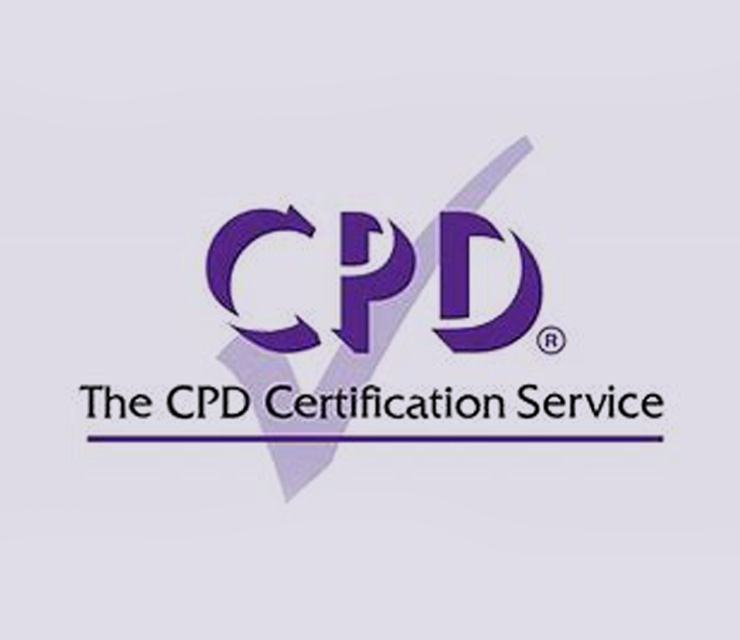- Water Monitoring
- WATER MONITORS BY PARAMETER:
- WATER MONITORING PRODUCTS:
- EchoSmart Sludge Blanket Monitor
- FilterSmart Gravity Filter Backwash Monitor
- Q46N Dissolved Ammonia Monitor
- Q46H/62-63 Residual Chlorine Monitor
- Q46H/79PR Total Chlorine Monitor
- Q46H/65 Chlorine Dioxide Monitor
- Q46C2 2E Conductivity Monitor
- Q46C4 4E Conductivity Monitor
- Q46/84 Hydrogen Peroxide Monitor
- Q46D Dissolved Oxygen Monitor
- Q45D Dissolved Oxygen Transmitter
- Q46H/64 Dissolved Ozone Monitor
- Q46/85 Peracetic Acid Monitor
- Q46P/R pH & ORP Monitor
- Q45C2 2E Resistivity Transmitter
- Q46S/66 Residual Sulfite Monitor
- Q46/88 Suspended Solids Monitor
- Q46/76 Turbidity Monitor
- View More >
- SMART WATER SOLUTIONS
- Gas Monitoring
- GAS MONITORS BY PARAMETER:
- GAS MONITORING PRODUCTS:
- A12 2-Wire Toxic Gas Transmitter
- A12-17 Combustible Gas Detector
- A14/A11 Modular Gas Detector
- A21 Gas Sampler
- A23-14 Ozone Generator
- B12 2-Wire Gas Transmitter
- B12 Wet Gas Detector
- B14 Gas Alarm Module Receivers
- C12-17 Combustible Gas Detector
- C21 Dri-Gas Sampling System
- D12 Toxic and Combustible Gas Detector
- D12Ex-IR Infrared Gas Transmitter
- D16 PortaSens Portable Gas Leak Detector
- E12-15 IR High Level Ammonia Gas Detector
- F12D Toxic Gas Detector
- F12iS Toxic Gas Transmitter
- GasSens Midi Controller
- IsoMon Dual-Channel Gas Detection
- Q45S Wet H2S Gas Detector
- Industries
- Support
- News & Case Studies
ATi’s Senior Technical Support Analyst, Derek Leslie, discusses why putting the customer’s individual needs first has never been more important for the future of smart water.
Digitalisation is bringing new possibilities for managing water utilities more efficiently and resiliently to proactively safeguard water quality and create intelligent, optimised, Smart Water networks. As the emphasis on the future of Smart Water rises, water professionals are becoming more focused on finding the right, tailored solutions that help to improve water quality, by extracting deeper insights on pipeline networks and enhancing operational efficiencies.
The entire water industry has been entrusted with the responsibility of supplying vital water services to communities, safeguarding water at all points on its journey from source to tap. As custodians of this journey, we are also responsible for continually developing innovative solutions to manage these systems efficiently, effectively and in a transparent manner.
Until recently, utilities lacked the tools to manage our ageing water systems and proactively manage water quality, however, advances in digital technologies are now enabling better knowledge, system hygiene, more efficient monitoring, diagnostics and targeted investments, along with intelligent system management.
It has already been proven that collaborative, intelligent, networked systems are the key to the future of water management, assisting in identifying and predicting water quality issues. But they also improve operational tactics, promote conservation, minimise consumption and offer 24/7 reassurance that safe and wholesome water is being delivered to communities and this is what is helping to drive the industry towards becoming truly smart. However, as is the case with most problems, there isn’t a ‘one size fits all’ solution. This is where technical innovation and collective expertise play a vital role.
As an example, if a car dealership revealed the last 20 cars that they sold, very few would be the exact same model or specification. This is because customers buy a car based on their specific requirements and budget limitations, essentially selecting a bespoke model fit for individual needs. So why should the water industry be any different, forced to follow the crowd when it comes to what defines Smart Water? The simple answer is, it isn’t.
New technology enables the bespoke design of water quality monitoring systems for a variety of applications. Like cars, the basic monitors are similar, as all water companies monitor leakage and pressure pretty much as standard, but different options are then available to build modular systems to suit individual site requirements. This is what makes the systems truly smart. By taking the time to listen and understand what each water utility’s individual needs and challenges are, working together with skilled, multi-technology partners to create tiered options, results in bespoke solutions tailored to specific needs.
However, it is important to remember that one water professional’s ideal Smart Water solution will differ from another’s, depending on the application and the ‘pain’, even from within the same water company.
Scalable, smart network solutions that can be customised for different applicational needs are fast becoming a prerequisite, rather than a luxury. These solutions require a truly smart approach, one driven by data, innovative technology and collaboration, allowing utilities to select the functions they need to tackle the problems they are facing, adapting to meet their changing needs over time.

Network automation control systems
While Smart Water offers untold benefits, utilities are still working to understand how to gather, manage, analyse and action the data being generated by ever-evolving new technologies. The only problem with Big Data is that we can often become overwhelmed by the amount of information we receive. Understanding and interpreting this data is an essential part of the puzzle if we are to achieve true Smart Water.
In summary there is huge unsaid concern for reservoir quality. There is also apprehension that once this previously unknown data is unlocked, a can of worms could be opened, and can utilities afford the solutions? However, the real issue is, we can’t afford not to know.This is where network automation is needed to be able to progress from what is currently being badged as Smart Water to the next advance in technology. To combine the controls of flow and pressure with water quality data, offering early warning alerts to events, must be the goal ahead. The end result does not have to be a singular, a one size fits all, much like the choice of car and model. A modular approach to control systems is what the industry requires.
At the moment, the understanding of this complex data and ensuring you get the best value from your investments comes down to people. People within water companies, academia and consultants that can tell you what this all means and when things are happening within your networks.
With the right sensing technology, tailored to specific needs and detailed data analytics, there is sufficient and accurate information to optimise treatment, cost, protect assets and predict the future, whilst avoiding issues in the present, but only if you have the correct focus on ‘data to decisions’.
Collective expertise
The final piece of the Smart Water jigsaw is empowering water companies and the supply chain to be bold enough to turn innovations into business-as-usual processes and streamline activities to ensure effective collaboration. The challenge moving forwards is to learn from each other by sharing best practice, information and expertise for mutual benefit. What wisdom is there in several companies repeating similar trials and tests only to produce the same results?
Sharing must also involve people and skills. This includes academia, such as The University of Sheffield, Manchester University, and Imperial College, that work alongside the water industry to carry out independent studies and trials. There are manufacturers of sensors, loggers, control systems, data analysts, IOT and water consultants, all of whom have an immense repository of skills and knowledge for us to tap into and develop. Sharing experiences would quickly enable the industry to foster best practice in both Smart Water quality solutions and processes, encouraging the much-needed formation of multi-layered, multi-faceted, strategic partnerships rather than working in silo. Transparent collaboration, with shared values to improve the industry, is what will help us to achieve the goal of true Smart Water.
The onset of the digital revolution is bringing the possibility of comprehensive Smart Water networks ever closer. It is essential that, as an industry, we innovate and grasp this opportunity with both hands; this will lead to greater efficiency, improved network performance and enhanced customer service in an ever-demanding business environment.
The challenge now is to keep evolving and work smarter, developing new, innovative, customer focused technologies, with inter-disciplinary ways of working that are motivated by the goals of each individual project, tailored to the applications they are used in. Digital innovation will be the key to success and survival, enabling organisations to build a connected workforce, modernise operational processes and deliver enhanced customer service. Smart Water is changing the water industry as we know it and embracing innovation and digital transformation is not only enabling utilities to address today’s unprecedented challenges, but also invest in the future.
Featured Article
Exploring the misconceptions surrounding AI
The world of IoT and digitalisation has fast become a reality for the water sector, with much excitement…
ReadA team of experts, ready to help
A global company with a caring culture. We have a team of experts on hand to help with any product or support query you may have. Contact us and experience ATi’s exemplary customer support.
Get in touch





 Click here to see US contact details
Click here to see US contact details  Click here to see UK contact details
Click here to see UK contact details